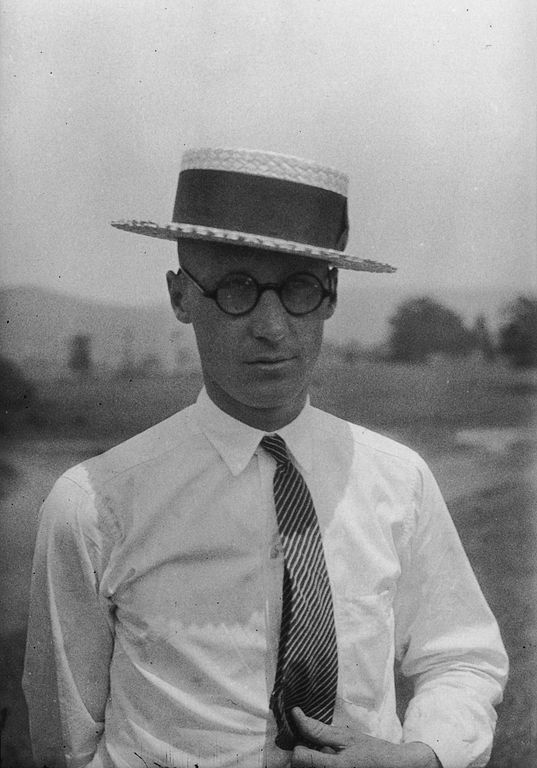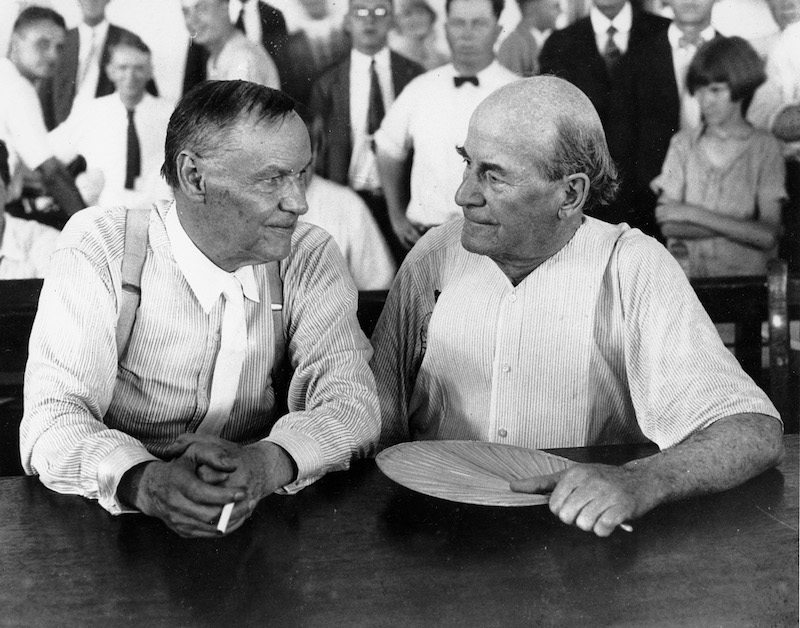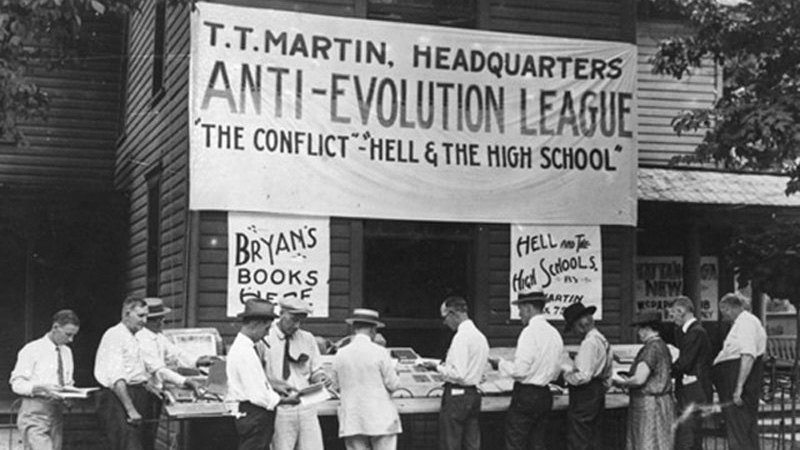Scopes Trial
Episode #4 of the course “Trials that shaped the modern world”
While the theory of evolution was proposed by British naturalist Charles Darwin in 1859, it was the US trial 75 years later that would entrench the theory in the western mindset. Scientific understanding was expanding in the late 19th and early 20th centuries, pushing the boundaries of commonly-accepted knowledge and education. The official name of the trial that brought the issue of including Darwin’s theory in public education to a head is The State of Tennessee vs. John Thomas Scopes. However, it is commonly called “the Scopes Trial” or even “the Scopes Monkey Trial.”
The events that led up to the court spectacle were less than dramatic: a substitute teacher led a science class by reading out of the textbook. That teacher, John Scopes, was accused of breaking a Tennessee state law enacted only earlier that year, which stated that teachers could not use non-biblical instruction materials. Scopes denied remembering whether he actually “taught” evolution, but he incriminated himself by stating that he read from the class’ textbook chapter that contained evolutionary theory. The conflict escalated and inflated, becoming a trial about issues larger than education.

John Scopes
The famous agnostic defense attorney of the American Civil Liberties Union (ACLU), Clarence Darrow, represented Scopes against William Jennings Bryan, a previous presidential candidate and special state prosecutor. The proceedings were open to the media and gained worldwide attention as the trial pitted science against religion in a debate about governing students’ minds through exposure to educational texts and materials.

Clarence Darrow, left, and William Jennings Bryan speak with each other at the “monkey trial” in Dayton, Tenn. in 1925. Darrow was one of three lawyers sent to Dayton by the American Civil Liberties Union (ACLU). They defended John T. Scopes, a biology teacher, in his test of Tennessee’s law banning the teaching of evolution. Bryan testified for the prosecution as a bible expert. (AP Photo)
The Scopes Trial ended with Judge John T. Raulston declaring that Scopes had broken the law and ordering him to pay a fine. Tennessee and its supporters claimed victory, as evolutionary theory was removed from science textbooks in Tennessee. The state Supreme Court upheld the Scopes trial decision, and it was ultimately the US Supreme Court case Epperson vs. Arkansas in 1968 that overturned states’ ability to base public education on religious texts.
Recommended book
Share with friends

